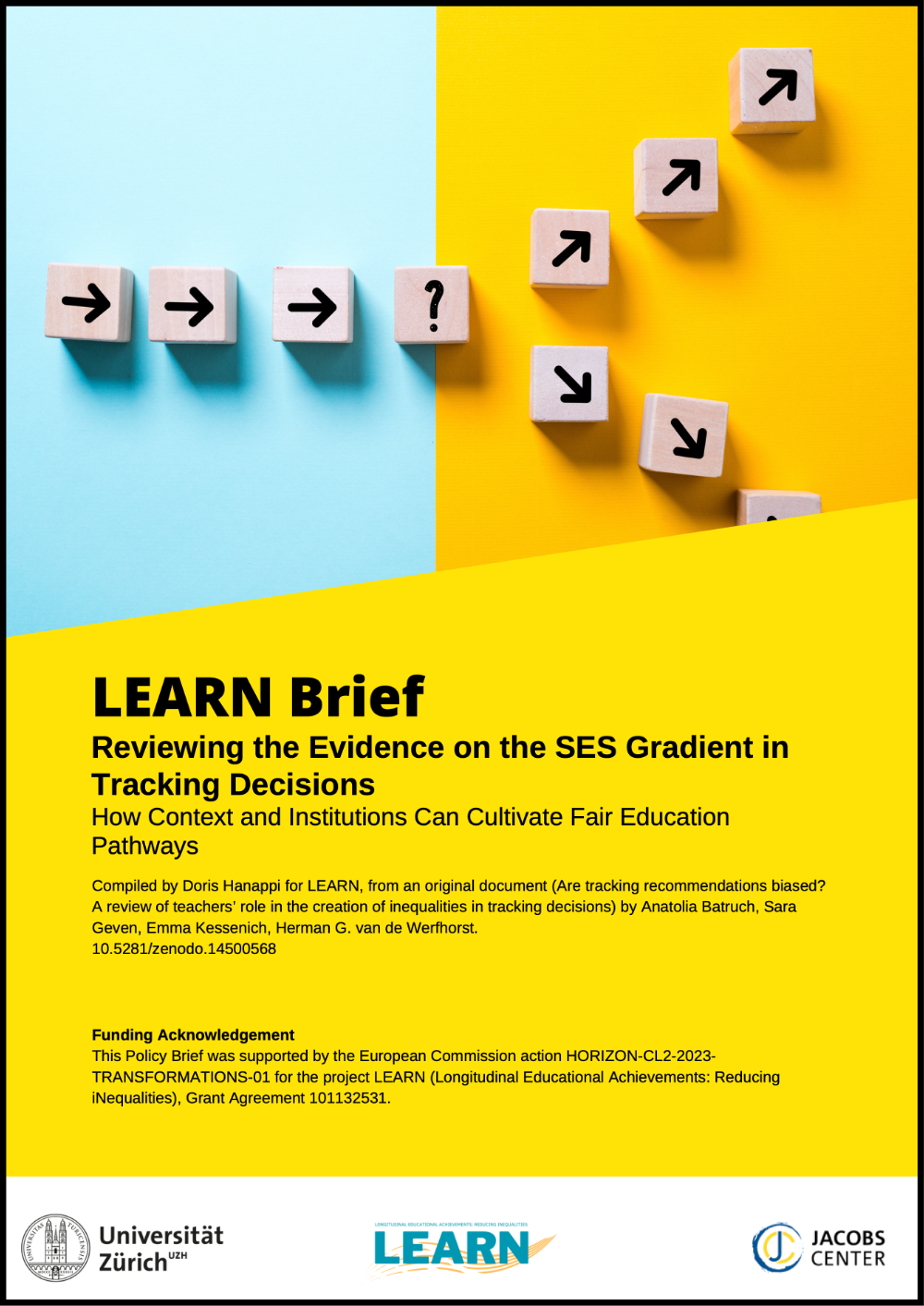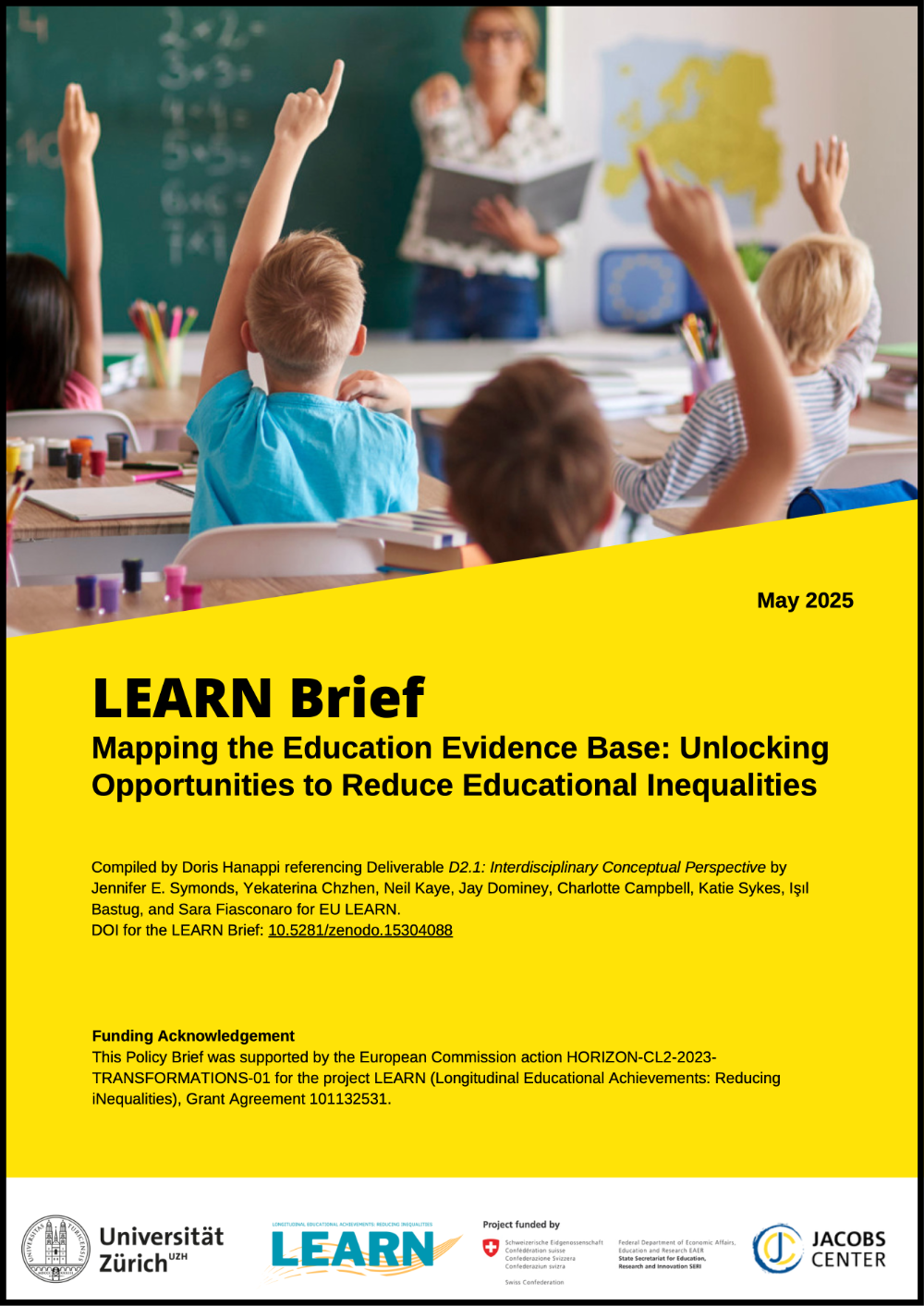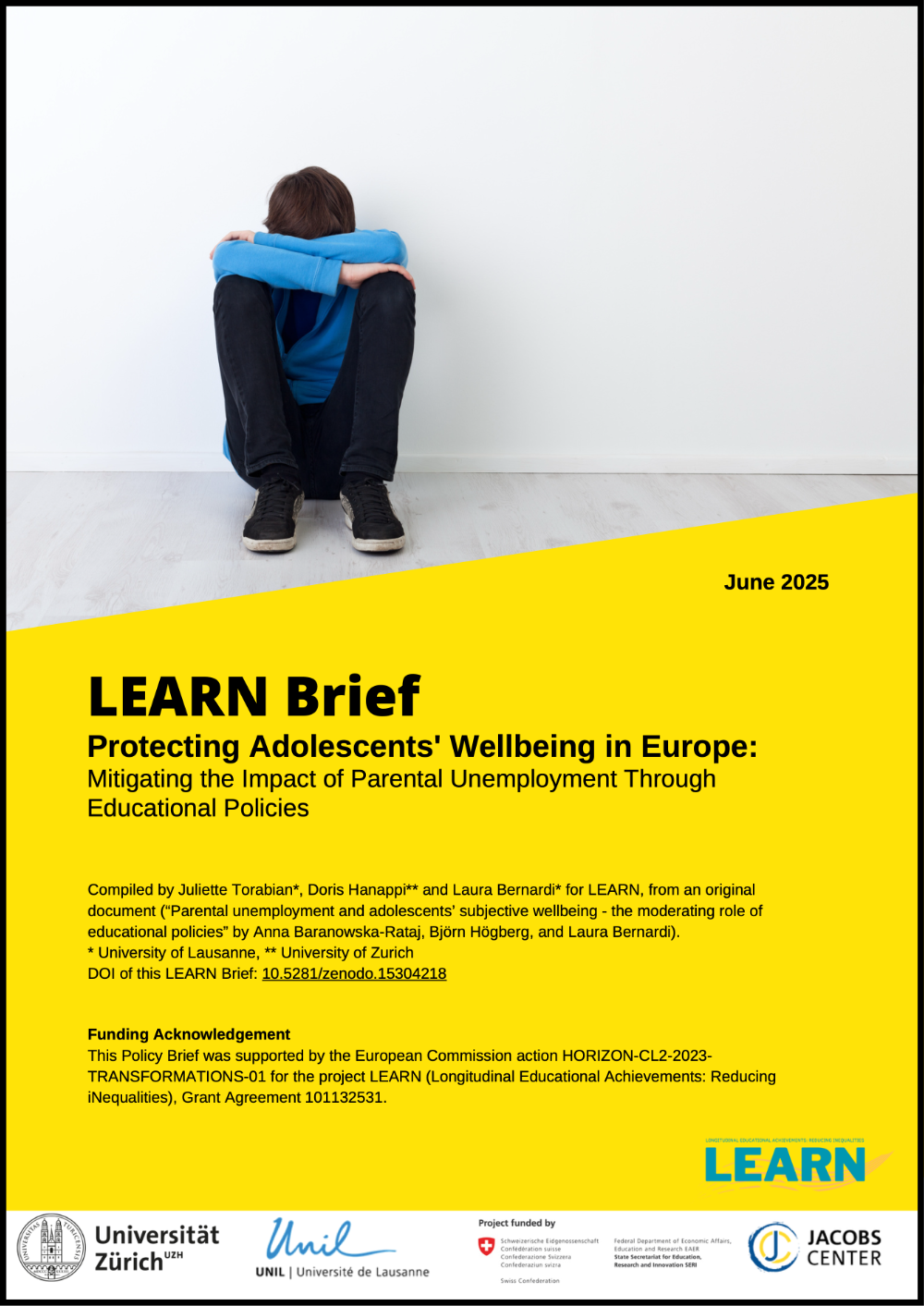Evidence X Design
Our scientific teams develop the tools and services to help drive evidence discovery and use throughout our scientific network and the broader expert community.
Our scientists work hand-in-hand with education experts, policy-makers and implementers to make evidence work. Evidence areas cover the influence of families, schools and society on learning variability and development of children and young adults, mental and physical health problems in early childhood and adolescence, the development of cognitive mechanisms in the context of language acquisition.
- We develop case-based material and tools targeting specific expert community needs.
- We launch state-of-the-art tools that map education and learning data leveraging evidence for action.
- Provide one-of-a-kind policy briefs and digests for education stages and transitions, and geographic sub-regions.
Explore
LEARN Brief: Reviewing the Evidence
on the SES Gradient in Tracking Decisions
Your social background should not determine your future—but for too many students, it still does.
Studies show that students from lower socio-economic backgrounds receive lower track recommendations from teachers, even when their academic performance is equal to their wealthier peers. Bias—sometimes unconscious—perpetuates educational inequalities, limiting life chances before a child even reaches adulthood.
LEARN Brief: Unseen Currents:
How Peers Shape School Choices and Inequality in the Netherlands
How do children really choose their secondary school?
A growing body of evidence suggests that it's also about their peers in primary school.
In this LEARN Policy Brief, we zoom in on the Netherlands - where school choice is relatively free and geographical restrictions are minimal - to explore how peer dynamics shape educational pathways.
LEARN Brief: Mapping the Education Evidence Base:
Unlocking Opportunities to Reduce Educational Inequalities
Primary and non-university tertiary education are underrepresented in reviews. Research emphasizes academic outcomes, overlooking cognitive, socioemotional, and mobility factors. Focus remains on family-level influences, neglecting broader contexts. Though strong theories guide studies, empirical measures are narrow. Educational inequality evolves across life stages, from early childhood to adulthood.
LEARN Brief: Protecting Adolescents' Wellbeing in Europe
Adolescence is a critical window in shaping lifelong wellbeing—and when families face economic insecurity, the effects can ripple far into the future. This cross-national study explores how parental unemployment is associated with adolescents’ subjective wellbeing across Europe. Most importantly, it uncovers whether and how national education policies can buffer youth from the stress of financial hardship. The findings offer timely insights for policymakers seeking to build resilience in the next generation.




